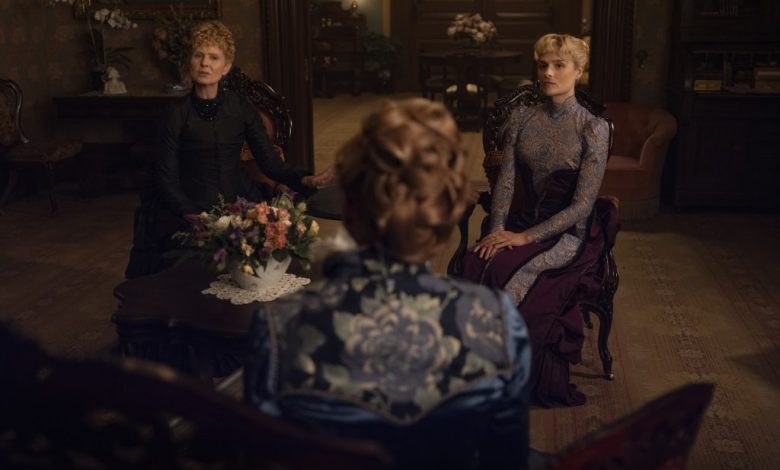“The Gilded Age” Season 3 Review: Power, Politics, and the Series’ Boldest Transformation Yet

In the final episode of Season 2 of HBO’s “The Gilded Age,” the van Rhijn family nearly lost everything. After Oscar (Blake Ritson) fell victim to a sophisticated scam, most of the family’s fortune vanished, prompting Agnes (Christine Baranski) to fear losing the opulent world she helped create. Salvation came in the form of an unexpected inheritance from Ada’s (Cynthia Nixon) late husband, Luke Forte—shifting the family’s power dynamics just as the season wrapped.
Season 3 wastes no time in unraveling that resolution. Agnes and Ada are now rivals under the same roof, vying for influence and redefining their identities. Meanwhile, across the street, Bertha Russel (Carrie Coon) is obsessed with securing her daughter Gladys (Taissa Farmiga) a place beside Hector, Duke of Buckingham (Ben Lamb). Her suffocating grip on her family threatens to spiral beyond control.
George Russel (Morgan Spector), Bertha’s husband, is simultaneously battling a collapsing economy while trying to construct a cross-country railroad. Their separate ambitions, driven by pride and self-interest, blind them to the emotional cost they’re inflicting on their family.
Julian Fellowes’ follow-up to “Downton Abbey” has always been visually lush and rich in historical detail. But in Season 3, the show evolves from a charming period drama into a layered exploration of power, class, and identity. The characters’ arcs deepen as they face existential stakes—romantic, financial, and social—that transform them by season’s end.
This season’s dialogue cuts sharper. Monologues rivaling the best of the series are delivered with poise, and verbal sparring reaches a breakneck pace. “Winning in business and winning in society are linked,” Bertha declares—one of many lines delivered with fervor by Carrie Coon, who continues to make Bertha one of the most compelling characters on television.
Coon’s portrayal adds a fragility to Bertha that deepens her motivations, preventing her from becoming a caricature. Alongside her, Morgan Spector imbues George with a frenzied arrogance, a man consumed by ambition and isolated from reality. Their chemistry is electric, creating a quiet tension that pulses beneath even their calmest scenes.
While “The Gilded Age” traditionally steered away from overt displays of desire and sexuality, Coon and Spector radiate an intensity that makes this restraint feel deliberate, not lacking. Their emotional and psychological intimacy is far more evocative, simmering beneath the surface and illuminating their flawed marriage.
See More ...
Season 3 also marks a significant shift in tone and purpose. The show begins to reckon with deeper issues such as colourism and queerness, primarily through the arcs of Peggy Scott (Denée Benton) and Oscar van Rhijn. These narratives challenge the ideals of polite society, pushing the show beyond its comfort zone and into unflinching territory.
The inclusion of these themes feels not only relevant but necessary. In addressing both social injustice and personal identity, “The Gilded Age” pushes past its former gloss to become a more authentic and daring drama.
What once felt like a safe, sumptuous costume piece has now transformed into a series with real narrative stakes. As the characters scheme and betray, the consequences are finally substantial—not just for the individuals, but for the world the show has so carefully constructed.
This third season is, without a doubt, the show’s finest. It gives its talented cast rich material and allows them to shine through layered storytelling and biting social commentary. As the finale suggests, the collapse of the carefully maintained facades may be imminent—setting the stage for a possible Season 4 that could further unravel the lives of the privileged elite.




